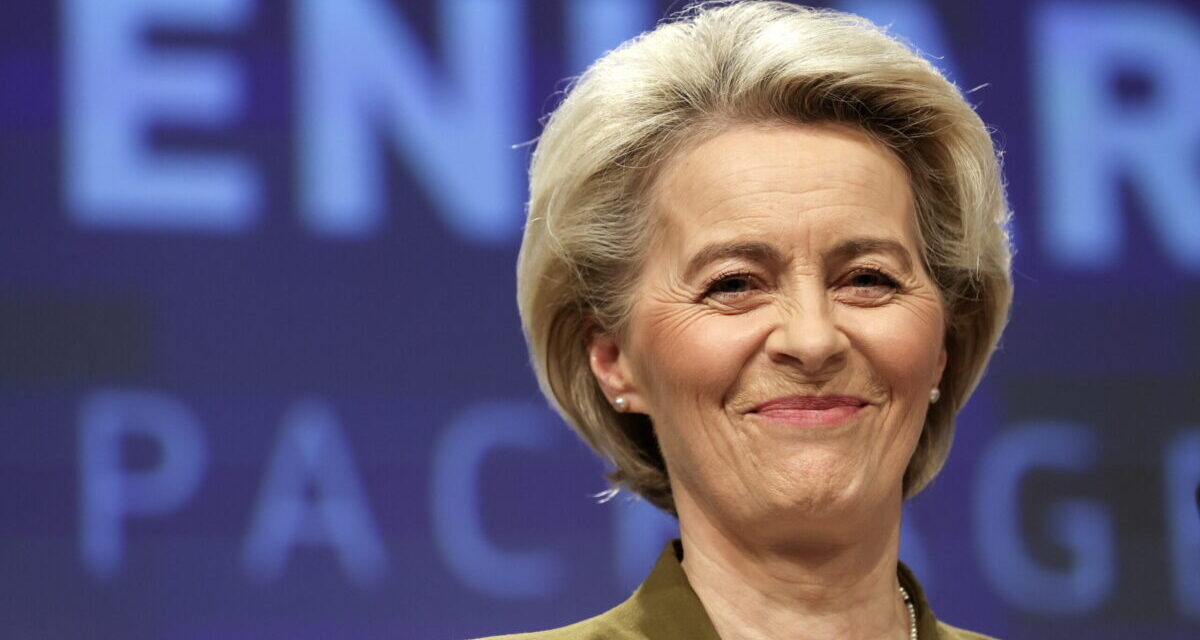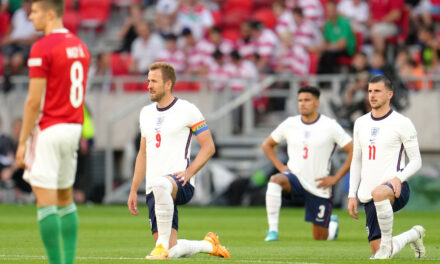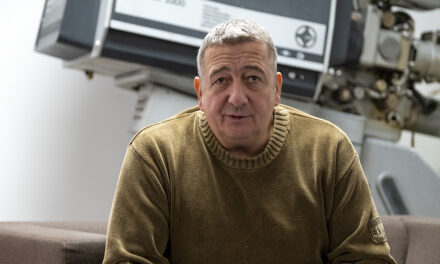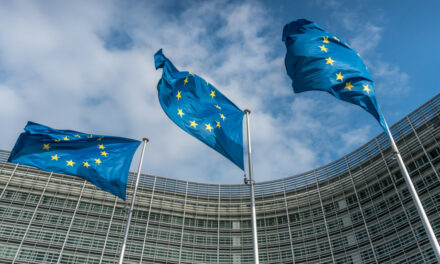Ursula von der Leyen announced on Monday that she will again compete for the post of president of the European Commission (EC). According to Zoltán Lomnici Jr., advisor of the Századvég Foundation, the current president's chances of re-election are increased by the fact that he has made numerous gestures not only to organizations linked to Soros, but also to the parliamentary left. At the same time, the expert did not rule out in his interview that the Hungarian government delegation would cause a surprise in Brussels regarding the person of the EC president. The nomination of von der Leyen, who aspires to the position of president, does not necessarily show his strength, there may be a German-American deal lurking in the background.
– On Monday, Ursula von der Leyen announced that she is once again targeting the presidency of the European Commission. Although his presidency was marred by scandals, we cannot speak of a rival for the time being (or, according to some rumors, not in the future). How could the former German defense minister become such a decisive person?
– It cannot be clearly stated that this really shows the power of the incumbent president; according to press reports, German Chancellor Olaf Scholz was strongly opposed to von der Leyen aspiring from the head of the European Commission to the NATO General Secretariat, which is why the latter is now turning to the revival campaign. Thus, instead of von der Leyen, Mark Rutte, the veteran Dutch politician who is stepping down after 13 years as head of government, will be able to replace Jens Stoltenberg at the head of NATO.
As a realistic scenario, it could have happened that the whole issue was essentially "played down" by the German and American left-wing governments. Von der Leyen's previous scandals (such as the "vaccine business") suggested that she is not a completely autonomous EU leader, and it is not necessarily incidental that the vaccine manufacturer Pfizer is also a joint German-American interest.
Let us recall the title of the Foreign Policy article of April 30, 2021: "Ursula von der Leyen's aristocratic incompetence." As of this writing, he already failed in finance as the German Minister of Defense, as the political leader of the Bundeswehr (German armed forces), he entrusted the army's procurement efforts to the neoliberal market logic supported by his advisers, and things went wrong, thus significantly contributing to the economic and morale reduction of the army. It is also worth reminding that during the annual evaluation program launch speech of the committee president last fall, it was also mentioned that it is already part of his renewal campaign, because in it he also talked about the EC's long-term plans.
The person of the President of the EC is first proposed by the European Council, consisting of EU heads of government and state, by a qualified majority vote (this requires the support of at least fifteen countries, which represent 65 percent of the EU population), and the results of the most recent EP elections are taken into account in the decision (anyone from the largest party can be elected). This candidate then participates in an official election process in the European Parliament (EP).
- Viktor Orbán was the only EU leader who publicly stated that he would not support a second mandate, but at the same time, in the European Council, the nomination of the president is unusually decided not by consensus, but by a qualified majority. If elected, what kind of treatment can Hungary receive in the next five years?
-As a result of the incorrect mining of the European mainstream, Hungary's situation is already much more complicated than, for example, during the Barroso cycles. were concluded, the board also - arbitrarily - blocked the payment of a part of the catch-up subsidies opened from 2021 by applying the so-called horizontal conditions.
Even so, the EC has gone too far with Hungary, and is now able to threaten the unity of the European Union.
While EU institutions should promote economic, social and territorial cohesion as well as solidarity between member states in the spirit of the treaties, today the EC rather sharpens the division within the integration community and increases this tendency. An important development of the recent period is that at the extraordinary EU summit held on February 1, 2024, a deal was reached regarding EU support for Ukraine, the European Council unanimously decided on this, so within the framework of this agreement, the war-torn eastern region will receive an additional 50 billion euros by 2027. European country.
Although the President of the EC, if he were a norm follower, could not differentiate between member states based on political sympathy, practice shows that Brussels has become a vanguard of double standards and is able to conduct any political witch hunt against member states that do not meet the expectations of the left-liberal mainstream. .
- According to rumors, Donald Tusk's party will also support the current president in the reshuffle. Does this increase the distance between Budapest and Warsaw?
- The number of Polish MEPs is currently 52, and the parties of the Civic Coalition led by Donald Tusk include EPP, Greens and Renew members. Tusk's party is the Civic Platform, which is a member of the EPP and currently has 11 representatives in the EP. Portland Communications January 24-31, 2024 according to his survey between In 2019, the Civic Coalition was measured at 27 percent, while its current support is 32 percent, so it is conceivable that Tusk's party will have slightly more mandates than after the EP elections five years ago.
There is currently a huge gap between the Hungarian and Polish governments, as the Polish prime minister is a Hungarian-phobic Brusselsite, one of the politicians who attack our country most often, and the Hungarian government is based on the rule of law, while in Poland, in the months following the elections, we witnessed actions that they are in no way compatible with the basic principles of democracy. Despite the above, Hungary remains a friend of the Poles, and the Hungarian government considers the cooperation of the V4 important - both economically and politically.
Our country is ready to enter into an alliance with anyone in the EU who respects our sovereignty and sees us as a partner.
- After the elections, the European Parliament will also be reorganized. According to current forecasts, a certain degree of rightward shift is expected in the institution, which has been increasingly trying to put pressure on the committee in recent years. Can we expect to get to know a new Ursula von der Leyen in the next term through a somewhat stronger right wing?
- There are currently 705 seats in the EP, but in June voters can decide on 720 seats. According to research published by Politico on January 26, 2024, if EP elections had been held on that day, the EPP would be the largest party family in the next five-year cycle as well, however, only the ECR and the ID can count on a significant strengthening, in their case 30 and 60 percent of mandates, respectively. we can expect growth. 361 mandates are required for a parliamentary majority. According to all standard research, we can expect the right wing to strengthen, however – since the EPP is already pulling towards the left – the true conservative, sovereignist side will presumably still not gain a parliamentary majority, but it may become significantly stronger.
CDU German politician Ursula von der Leyen, former defense minister, was a relatively good option in 2019, especially in the »relation« that Manfred Weber and Frans Timmermans were globalist, left-wing politicians.
It is important that, although the EP ultimately decides on the EC president, the EP must approve the new commission president proposed by the European Council with an absolute majority (half of all MEPs plus one). A significant majority of the heads of state and government of the member states are left-wing politicians, so it is almost impossible that a right-wing candidate who places national sovereignty at the center of his policy would be proposed to the EP. Von der Leyen is a member of the largest party family, the EPP, they will probably support her, and she has made numerous gestures not only to Soros-related organizations, but also to the parliamentary left, the Greens and the liberals, so in principle she can partly count on their votes. However, since the top candidate system, essentially the right to appoint the chairperson of the committee, has been wrested from the hands of the EP, Ursula Von der Leyen is not yet advised to step into the bear's skin.
Most recently, it was the decisive stance of the Hungarians that decided the person of the EC president, and it is possible that the Hungarian government delegation in Brussels will cause another surprise.
Cover image: MTI/EPA/Olivier Hoslet













